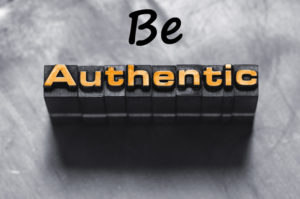What’s Your “Likability Factor” … And Should You Care?
A few weeks ago, a wonderful online literary journal accepted an essay I submitted. I was thrilled! But when I received a link to the soft launch of the issue, my heart dropped. A section of what I wrote had been changed. Now, this is not unusual. Editors makes changes to author’s work all the time. Most of those changes improve the pieces, but this edit just didn’t feel right. The link to the issue was tucked into a very kind email from the journal’s editor. She congratulated all those whose pieces she and her team picked and invited us to look over our work to make sure that all was ok. The editor welcomed questions and concerns, but, still, I was anxious.
What should I do? I asked myself. I was so happy to have a piece of my writing in this journal … should I just be “grateful” and keep my mouth shut? Or share my thoughts with the editor? Did I really have the right to push back for my piece, and, if so, how would I phrase my concern?
What’s So Hard About Negotiating?

My minor drama reflects a larger phenomenon that women have trouble with all the time—negotiating for themselves. What is that all about?
Do we have trouble negotiating because we were taught to “be nice” and “not make waves?” Do we lack confidence in our abilities and in our rights? Maybe.
But there is something even more troubling at play. According to an article published by the Women and Public Policy Program of the Harvard Kennedy School “Sometimes It Does Hurt to Ask,” women are sometimes “punished” for asking for what they want or have earned. When women negotiate on their own behalf, they often negatively influence what’s known as their “likability” factor.
Likability Factor?
It’s true. Unfortunately, there really is such “a thing.” I had never heard the term likability factor until I read Jessica Bennett’s column “But is She Likable Enough” a few weeks ago. Bennett is one of my favorite writers at The New York Times, and this piece, like many of her others, really got me thinking. Here’s how she begins:
“I was recently asked if I could recommend a ‘likability coach’ for a woman who’d received feedback at work that she was a bit too brusque.
A likability coach, really?”
My thoughts exactly, Ms. Bennett!
Men Don’t Have to Smile
 Bennett continues on a delicious rant I just have to share:
Bennett continues on a delicious rant I just have to share:
“ … men don’t hire likability coaches. They don’t pepper their emails with exclamation points (!) to sound nicer.” (Guilty! I do that all the time!) “They don’t ask each other for tips on how to appear less threatening or—if they happen to be running for president — get asked about their likability prospects.” Yes!
“They certainly don’t have to smile when they ask for raises (something that’s been shown to help women appear less aggressive). In fact, they don’t have to smile at all.”
No. Men don’t have to smile at all. But women do. Many women live within this no-win push-pull energy. If they are firm (without smiling), their co-workers will often describe them as bossy or bitchy or both. If they smile too much, on the other hand, they are not taken seriously, considered pushovers, or lacking in confidence and competence! (Sorry, I am very attached to the exclamation mark!)
Ladies! Let’s Get Off the Mat!
 Women are used to juggling, to wearing many hats—and personas. And many of us do it well. But why should we have to? Turning yourself into a pretzel is the stuff of yogis, and God bless yogis, but while we are in the workforce, in the community center, in the family, we need to find our way off the mat!
Women are used to juggling, to wearing many hats—and personas. And many of us do it well. But why should we have to? Turning yourself into a pretzel is the stuff of yogis, and God bless yogis, but while we are in the workforce, in the community center, in the family, we need to find our way off the mat!
Bennett refers her readers to another article “How Women an Escape the Likability Trap” by Joan C. Williams, co-author of “What Works for Women at Work.”
In that article, Williams writes about gender bias influences in the workplace: “Even as women have moved into traditionally male domains, feminine mandates remain. More than 40 years of research by social scientists have shown that Americans define the good woman as helpful, modest and nice. In other words, as focused on her family and community, rather than working in her own self- interest. Meanwhile, the ideal man,” (white man, I might add), “is defined as direct, assertive, competitive and ambitious.”
Femininity “Toolbox”?
Women who negotiate hard at work are often penalized, according to the research. They will have greater success if they add “softeners” to their requests for a raise, for example. Williams refers to this crazy balance that women must maintain as “gender judo.”
“Men, to be successful,” she continues, “just need to master and display masculine-coded traits; women, to be successful, need to master both those and some version of feminine-coded traits that do not undercut their perceived competence or authenticity. That’s a lot trickier.”
It is trickier. And exhausting.
Williams suggests that successful women see their “femininity” as an important tool in their success “toolbox.”
Something about this is starting to feel all wrong.
What Williams writes next, I believe, is the heart of the matter: “When women embrace feminine stereotypes like the office mom, they reinforce both the descriptive stereotypes that women are naturally nurturing and communal, and the prescriptive stereotype that they should be. But sometimes what women need to do to survive and thrive in the world is exactly the opposite of what they need to do to change it.”
Maybe yes. Maybe no. Williams talks about the strategy of “embracing a stereotype that typically holds women back — the office mom” and then about “flipping it around, using its momentum to propel herself forward.”
When We’re Inauthentic, We Are Selling Ourselves, and Those Around Us, Short

I am not faulting Williams here. I would never want to shoot the messenger. William is just presenting strategies that have worked for women at work. She actually refers to the different ways that men and women need to ask for raises as “revolting.” (Men can straight up ask. Women not so much.)
Still, I am deeply troubled by these strategy lessons. Is this the form of mastery that we’re looking to as women? “Using” femininity seems so 1950s, like taking a huge step backward. It feels so … manipulative, calculating, so … inauthentic. And when we’re inauthentic, we are selling ourselves, and those around us, short.
Let’s Embrace All Traits as Human
I hope I’m around to see the day when we dump the gender dichotomy, stop labeling traits as male or female but, instead, embrace all traits as human. In some circumstances we may all need to lean harder on the assertive side, in others, to listen more and open up the space. I am not in the corporate world (thank goodness), nor do engage in social science research, but I am a student of humanity and of how to best connect with others. I think that when we’re over 50, all of us are.
“Change the system, not ourselves”
Bennett ends her piece with an important thought:
“As the economist Sylvia Ann Hewlett once told me, it’s not women who are the problem. It’s that we still define leadership in male terms.
What if we tried to change the system, and not ourselves?”
Ahhh. That sounds much better to me. “Change the system and not ourselves.” And if we challenge ourselves to change the system—to step out of our comfort zones and have “ourselves” be seen—we will all have grown from the experience.
Are we ready for the challenge? I really think we are. (More about this next week when we discuss Reshma Saujani’s book Brave Not Perfect.)
I’d love to hear from women who work in male dominated fields. Or who have been asked to do the pretzel dance in their communities or families. How do you balance? Remain authentic? Please share your thoughts and experiences and what has worked for you—and what hasn’t.
See you next Friday!
Diane

P.S. Just in case you were wondering, I sent an email contesting the edit to my essay. I didn’t add any “softeners.” I simply stated my case clearly and respectfully and asked the editor to reconsider.
And she said “yes.” She changed the text back to the original … and she even thanked me.


Congratulations on having your piece published! (Exclamation point!)
Your topic this week is so relatable.
I have definitely sacrificed likability when I’ve been assertive.
I’m sure I over did it at times to be taken seriously, but I’ve learned to be cool, calm, and confident while asserting my needs. It’s a fine balancing act.
Thank you, Denise, for the congratulations and for sharing your own experience! (So glad to see I’m not alone in using the exclamation point!)
I love that you’ve “learned to be cool, calm, and confident while asserting my needs.” Such a hard one to master and a true balancing act.
Diane, Congrats on your P.S. It is a great lesson on being true to yourself and values. We are all so busy trying to please everyone else that we are willing to give up what we need or want. I work in a totally male dominated world. I have tried for years to be” all things to all people at all times”. Now that I am more mature I truly enjoy being myself and authentic especially with all of the corporate guys at work and my 4 sons and 2 brothers. Great Thinking. Change the process, enjoy yourself.
Thanks so much, Carol! Love that you have found your way retain your authenticity in all your male-dominated spaces! Love “change the process, enjoy yourself.”
Great topic, Diane, and related to the bullying article you stated earlier you were researching. Bravo for standing behind your AUTHENTIC writing unapologetically! Congratulations. Though not directly workplace stereotyping, my sudden epiphany from accumulated encounters as a patient with female and some male medical professionals has been an experience of bullying. Medical professionals, many of them female, who have benefited from the feminist movement, are disrespectful of their female patients’ lifestyles and choices. In fact these medical professionals are downright bossy bullies ordering their patients around. This week I saw a sleep specialist, an appointment made two months ago, which I almost cancelled when it was rescheduled. The provider, a woman much younger than I, was giving me all kinds of menopause advice I did not ask for and advising about mammograms, neither condition pertaining to sleep. I complained to the sleep disorder organization. Women strangers, especially women providers, often “pull rank” on other women who are their patients or customers, taking liberties they would never take with male patients or customers. Along with this condescending treatment women medical professionals show towards their patients is the treatment of women by the American medical profession in general as children without agency, ie “If you wish to try HRT, talk with your doctor.” As if a female ADULT cannot make an autonomous decision about her own health. Men are not advised to “talk with their doctors” for erectile dysfunction products, they are simply informed about the products and where the products can be purchased. After 70 years of dealing with overbearing medical professionals I am way past tired of it. Upon release from hospital after two months with a spinal infection in 2014 I literally felt like I was being discharged from prison; many rude and pushy nurses and aides. And 99 percent of the caregivers during that hospital stay were female. This is probably how little boys, particularly little boys of color, feel in elementary school: constantly scolded, confined, repressed, admonished, disrespected as a little dignified human being. Congrats on taking one small step in holding your ground and resisting!
Thanks, Diana, for you comment! It sure gives us much to think about! (I will definitely touch on many of these points when I run the bullying post.) The “less-than” treatment that women so often receive from the medical community has been well-documented for some time now, and yet, women still run into situations like you describe way too often (and too often at the hands of other women). I also thank you for bringing up how these indignities are not reserved for women alone, that people of color have this experience on a daily basis. Your example of how you were treated at the sleep clinic is a perfect example of how “older” people are treated in society–it doesn’t seem like you were bullied (that goodness for that) but treated condescendingly, a common indignity that those of a certain age unfortunately face. I am glad that you did not remain silent, and I have no doubt that you will continue to speak your mind! More power to you, Diana!!
Diane,
Your P.S. has me cheering!!!! Another amazing blog on an important topic – thank you.
This comment from Williams hits it on the head: “But sometimes what women need to do to survive and thrive in the world is exactly the opposite of what they need to do to change it.”
I remember negotiating for a salary increase years ago when I was offered a position at a salary that I knew was lower than my predecessor. The woman in HR was clearly annoyed, but I pressed on and I did get the increase. It was a very small organization and I learned later, casually from a co-worker, that this woman from HR “hated” me. Because I had only the one encounter with her, I was baffled. I did conclude that it might have been my “brazen” request for a fair salary. Your blog brought this memory back and I see it so clearly now!
Sherry
Thanks for sharing that experience, Sherry! Good for you that you “persisted” and great that it worked out in your favor. I think we all need to be persistent in the face of injustice, even if we will be “hated” for it … reminds me of another strong woman who persisted … Elizabeth anyone?
How wonderful that you wrote to the editor sans softeners. I always caution myself, when doing things like that, to keep it as short and simple as possible – no qualifiers, no long explanations. That, too, is part of the impossibility of being a woman. (Something I say to my sweetheart constantly, “It is impossible to be a woman.”) Thanks for this important article.
Thank you, Alison! Oh, that “impossibility of being a woman!”